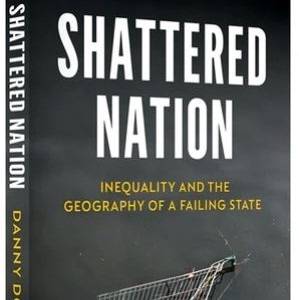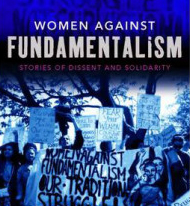The party conferences are now more boring than ever before. This isn't an old fart complaining that things were better in his youth; it's the result of deliberate policy. Party managers, especially the control freaks who run New Labour, hated seeing all those rows, splits, arguments and disputations on television. So they did their best to get rid of them. The result, of course, was that television had less and less interest in the party conferences, and coverage has rapidly diminished. But then politicians are notoriously poor at looking beyond the immediate consequences of what they do.
It's not all bad news for the party managers. They can still expect a good show for the leader's speech (though Alastair Campbell moved heaven and earth to get Blair's speech on the news ahead of the verdict on O.J. Simpson, and after his last speech as leader, William Hague was drowned out by the uprising in Belgrade which got rid of Milosevic.) If at the point when an elderly worthy stands up and declares that the Labour Party he or she worked for back in 1934 was a party of principle, not the rightwing shambles of today, or the scene where some acned Tory boy in a threepiece suit demands the restoration of corporal punishment in primary schools, the TV cameras have moved away for yet another discussion with three journalists assembled more or less at random in the bar, then nobody at the top is very sorry.
(One of the new phenomena at party conferences is the sight of young women crisscrossing the conference halls, coffee lounges, corridors and bars, seeking out people to appear on television. Now there is so little coverage of actual speeches from the floor, feeding the leviathan has become a fulltime job, and the young women sometimes called 'brickies' because of the size and shape of their radios are constantly nattering to what sounds like an unseen minicab despatcher. "I've got George Jones, can't see Trevor Kavanagh and his mobile's off, oh, there's Cathy Newman, will she do?")
To be fair the Tory conference, with the exception of 1963 when news came of Harold Macmillan's resignation, and 1994, when the Brighton bomb exploded an event you can hardly blame on the party brass was always fairly bland. When the Tories were in power, which was usually, motions were like those Latin questions, expecting the answer 'yes'. "This conference applauds the splendid work of the Department of Administration, which has consistently raised standards and has won the confidence of the electorate " Once a motion for the home affairs debate called on the Government "to recreate the situation whereby a virgin, accompanied by a small child and carrying a bag of gold, could walk in safety from one end of the kingdom to another."
Labour had the ructions. There was Nye Bevan's 'naked into the conference chamber' speech on nuclear disarmament (Brighton, 1957) Hugh Gaitskell's 'fight and fight and fight again' speech on the same topic (Scarborough, 1960), Neil Kinnock's assault on Militant in 1985, and the half coherent but furiously effective speech by John Prescott in 1993 that possibly tipped the balance in the Labour party democracy vote for John Smith.
Sometimes, fuelled by real passion and quite a lot of drink, fighting would spill over into the gents' at the Imperial Hotel, Blackpool, or even into the lobby. Nowadays that seems unlikely, since everyone present has the feeling that they are taking part in a vast corporate video an impression heightened by the huge number of companies which maintain a presence at the conferences. Several hundred have stalls, filling every cranny on the halls and the hotels. The bookshops you can understand, the campaigning groups and trade unions likewise, but it is strange to see airports setting out their stands along with new towns, as if delegates were likely to stop by and say, "That's it! Skelmersdale will be the site of my next business! Look at those motorway connections, and the free key rings!"
Corporate entertainment is also huge now. In the old days there would be the occasional regional party, plus Welsh Night and Scottish Night at Labour. Now every company of any size wants to throw a bash, preferably at the conference of the governing party. British Airways, British Gas, BT, Saatchi and Saatchi, ITN, the BBC, the Scotch Whisky Association, various water companies, embassies and even charities, offer anything ranging from champagne with expensive canapés to warm white wine and crisps. What with the lunches, which might be a TV company, or equally a corporation that wants to bury toxic waste under school playing fields, the cunning delegate, MP or hack can eat and drink free for the week.
But for how much longer? Already there are rumblings that the conferences are too many, too long, and too expensive. In 2001, just after 9/11, Labour and the Tories truncated their conferences to a couple of days, and nobody seemed to mind very much. The Liberal Democrat conference has always been a less stressful affair, and that year managed to squeeze in a debate on the threat to independent cinemas even while the planet seemed threatened by meltdown. MPs and ministers traditionally loathe conferences, seeing them as little more than an opportunity to be bored by yet more speeches, and be buttonholed by yet more constituents some of whom think one obligation of an MP is to spend a lot of money on his party officials' food and drink. Others, more enthusiastic, see them as a vital means of making their number with the rank and file. Anyone who speaks to more than a dozen fringe meetings is running a leadership bid.
On the other hand, for many delegates the conference is the highpoint of their year, the real holiday, so much more exciting than the fortnight in France or Florida. They may be moribund, regarded as a dead weight on the TV schedules, but they're not dead yet.

